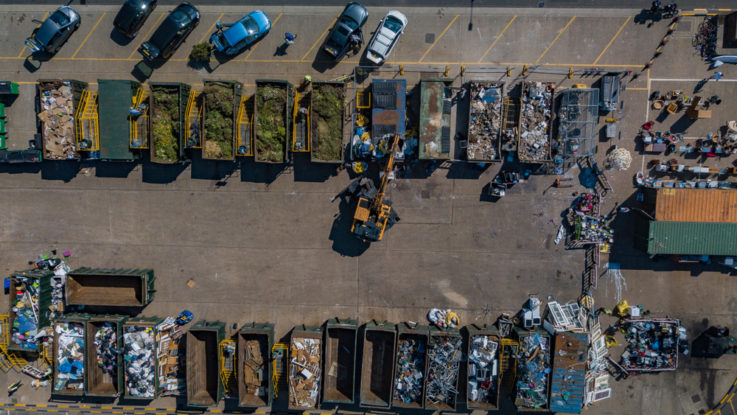
The cities of of Bournemouth, Christchurch, and Poole in Britain are conducting a pilot program that will use drone technology to deal with litter. In a partnership with environmental non-profit Hubbub, startup Ellipsis Earth, and fast food brand McDonald’s – which is funding the trial – drone data and AI-powered analytics will be used to make decisions on where to place trash cans, how to schedule street cleaning, and how to educate communities about litter.
Ellipsis Earth uses lightweight COTS drones to capture the data. The software analyzes the aerial imagery and identifies plastics and the type of waste – differentiating between plastic bottles, fishing nets, bottle caps and other trash. The data can then be used by the city councils to help them better understand and prevent littering.
The use of drones can draw concerns about privacy, but Ellipsis Earth conducts the surveys in the early hours of the morning before the beaches are cleaned and when there are few people around. The company states that their software automatically rejects any identifiable images of people, pixelates them and then deletes them from the system to avoid any issues with identification.
A previous trial conducted in the summer of 2019 in Sorrento, Italy saw a reduction in trash “by 45 percent and cigarette butt waste by 69 percent,” according to city authorities.
Trewin Restorick, CEO and co-founder of Hubbub said: “We were really inspired by the impact of this technology which we’ve seen work so successfully in Sorrento. Basing behaviour change activity on real data will really help us maximise impact and we’re excited by what could be achieved. Litter continues to cause problems for authorities in every part of the country. We want to create a replicable campaign that can be used as a template for future projects in other locations. Collaboration is at the heart of this campaign, so we’re keen to get as many local businesses and community groups on board to play their part.”
Ellipsis Earth began to capture data over beaches, parks, shopping streets and green space last month, using lightweight COTS drones. As COVI restrictions ease, the surveys will be repeated. “This data will inform a series of litter interventions over the course of the summer and a further survey will take place in July to assess whether they have been effective,” says the announcement.
“Using our custom machine learning, Ellipsis software can identify plastic with a 93% accuracy and 95% certainty. Our data is therefore globally comparable and scientifically robust, works in submerged water, with defected or degraded plastic, and in all terrains,” says Ellipsis Earth.